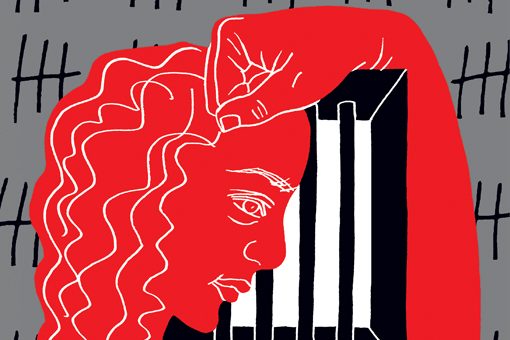

In April 2020, V. Dimakis was transferred from Korydallos I prison to Grevena prison. He subsequently went on a hunger strike and then a thirst strike as well, demanding his return to Korydallos so that he could continue his studies at the university. On 30-4-2020 his transfer back to Athens was announced, at which point he stopped the hunger and thirst strike.
On 9-5-2020 he was finally transferred to Korydallos prison. However, instead of going to the cell he was in before his transfer, he was temporarily placed in the Korydallos II prison, with the Ministry of Civil Protection stating that this was due to the need to comply with health protocols, however here again he was temporarily denied access to education. On 23-5, Dimakis announced that he would halt all forms of food, water and communication in protest. Finally, on 27-5 his transfer request back to his original cell was approved, and he stopped the hunger and thirst strike.
Dimakis had previously undertaken a hunger and thirst strike in 2018, again in protest at the restriction of his right to education.
Dimakis’ transfer as well as the general issues raised in this case both in terms of the right to education and in terms of the consequences of the COVID-19 pandemic for prisoners were the subject of intense political debate, with differing perceptions and interpretations of the chain of events.
Dimakis’ lawyer countered that: a) his transfer to Grevena was unjustified and vindictive and appears to have taken place due to his participation in a protest movement of prisoners to limit the prison population due to the pandemic, b) when he was transferred to Korydallos II he was not given the opportunity to attend his courses through distance learning, as the prison did not have the necessary equipment and infrastructure, and none of the alternatives proposed by Dimakis and his lawyer were initially accepted, c ) when finally on 25-5 he was given access to a computer, his poor health due to the hunger and thirst strike made it impossible to follow the course, d) his placement in Korydallos II was not for quarantine reasons as he interacted normally with his inmates and prison staff, e) the whole attitude of the Ministry seems to “send the message that only by harming himself can the prisoner access his rights” and f) the Ministry’s announcements did not correspond to reality, and that some aspects could even be considered defamatory. (For more information see articles from MediaTVnews, News247, Lifo, Neolaia and TaNea).
Political opposition parties and civil society criticized Dimakis’ treatment and supported his demands, demanding that he be transferred as he had requested and that his access to education be restored immediately, in line with human rights and the rule of law. KKE, Communist Party of Greece issued a statement and asked a question in Parliament; the party MeRA 25 also intervened. See articles in Flash.gr and in the Efimerida ton Syntakton for more on the reaction of political parties. The Greek National Commission for Human Rights (1, 2, 3) and the Hellenic League for Human Rights also spoke out, among others.
The imposition of a penal sentence serves specific purposes, which includes rehabilitation and reintegration into society.
Whilst the individual is deprived of their right to liberty, the state still has an obligation to ensure the effective exercise and protection of their other rights, such as the right to education.
In a state governed by the rule of law, therefore, state authorities must respect and ensure the rights of prisoners, without prisoners having to fight for the rights they are entitled to.
In this case, the prisoner V. Dimakis went on a hunger and thirst strike, endangering his life, in order to secure his right to education.
Bank Account number: 1100 0232 0016 560
IBAN: GR56 0140 1100 1100 0232 0016 560
BIC: CRBAGRAA
![]()
In a time where the very foundations of democracy are gradually being eroded by the rise of extreme nationalism, alt-right movements, the spread of disinformation and corporate capture, the efforts of organisations such as Vouliwatch are more relevant than ever.
We rely on the generosity of each and every one of you to continue with our efforts for more transparency and accounta
By financially supporting Vouliwatch you support our litigation strategy, our campaigns for transparency and accountability in the political system, the development of new civic tech tools, our research projects and last but not least our impartial and accurate